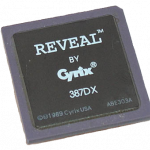Not a member of Pastebin yet?
Sign Up,
it unlocks many cool features!
- CREATE OR REPLACE FUNCTION public.merge_all_test2()
- RETURNS void
- LANGUAGE plpgsql
- AS $function$
- declare
- agrow RECORD;
- agrid numeric;
- ver numeric;
- missing_agrio CURSOR FOR select * from R_AGRIO_test
- where main_id is null
- order by tagid, blockid, rowdate, device_type, placement;
- missing_brkiofaults CURSOR FOR select * from R_BRKIOFAULTS_test
- where main_brk_id is null;
- BEGIN
- with pivot as (
- select
- agr.id as node_id,
- make_r_code(agr.tagid, agr.blockid) as code,
- get_r_lock(make_r_code(agr.tagid, agr.blockid), false) as locked_ver,
- main_agr.id as main_id
- from R_AGRIO_test agr
- left join R_AGRIO main_agr
- -- all of the key columns must be here!
- using ( tagid, blockid, rowdate, device_type, placement )
- )
- update R_AGRIO_test
- set
- locked_version = pivot.locked_ver,
- main_id = pivot.main_id,
- lock_code = pivot.code
- from pivot
- where
- R_AGRIO_test.id = pivot.node_id;
- select count(id) as c from R_AGRIO_test where locked_version <= 0 into agrow;
- if agrow.c > 0 then
- -- $TODO: we used to be able to respond with the code, and ver that
- -- lead to a failure, but now it's more complicated to, but possible,
- -- and should be done if this becomes a problem.
- raise exception USING ERRCODE = 'check_violation',
- MESSAGE = 'Can not obtain lock for ' || agrow.c || ' entries from r_agrio';
- end if;
- -- all entries that have version less than the locked_version can be
- -- removed now (we used to ignore them, but now it's just easier to delete)
- -- note that the expectation that all dependent brk entries will be deleted
- -- by cascade
- delete from R_AGRIO_test where version < locked_version;
- -- now, for all the entries that weren't found in the join with main r_agrio
- -- table, we need to create a new entry there.
- for agrow in missing_agrio loop
- -- this is a bit tricky. We want to just establish the new main R_AGRIO
- -- entries, and then merge into them later, for all of the data set, so
- -- we use proper key values, but 0 data values.
- select merge_agrio(
- null::numeric,
- agrow.tagid,
- agrow.blockid,
- agrow.rowdate,
- 0, 0, 0, 0,
- agrow.device_type,
- agrow.placement,
- 0, 0) into agrid;
- update R_AGRIO_test set main_id = agrid where current of missing_agrio;
- end loop;
- -- now, let's merge all r_agrio data in bulk!
- with n as (
- select * from R_AGRIO_test
- order by tagid, blockid, rowdate, device_type, placement
- )
- update r_agrio a set
- count = a.count + n.count,
- events = a.events + n.events,
- devents = a.devents + n.devents,
- duration = a.duration + n.duration,
- unserved = a.unserved + n.unserved,
- unconfirmed = a.unconfirmed + n.unconfirmed
- from n
- where a.id = n.main_id;
- -- r_agrio data merged, move to sattelite tables now.
- -- it's the same deal now:
- -- 1. Merge the node table with main table to find which
- -- primary keys to update.
- -- 2. Create missing records, if any
- -- 3. do the actual merge.
- -- Note, that there is no order-by for sattelite tables,
- -- we already would have locked R_AGRIO entry if there is any update.
- -- R_BRKIOFAULTS
- -- main_id : main R_AGRIO.id
- -- sat_id : main R_BRKxxx.id
- -- node_id : node R_BRKxxx.id
- with pivot as (
- select
- brk.agrioid as main_id,
- brk.id as sat_id,
- refed.node_id as node_id
- from (
- select
- b.id as node_id,
- a.main_id as agrioid,
- b.blockid as blockid,
- b.name as name,
- b.type as type,
- coalesce(b.cname,'') as cname,
- b.typeid as typeid
- from R_BRKIOFAULTS_test b
- join R_AGRIO_test a
- on a.id = b.agrioid
- ) refed
- left join R_BRKIOFAULTS brk
- on
- refed.agrioid = brk.agrioid and
- refed.blockid = brk.blockid and
- refed.name = brk.name and
- refed.type = brk.type and
- refed.cname = coalesce(brk.cname, '') and
- refed.typeid = brk.typeid
- )
- update R_BRKIOFAULTS_test
- set
- main_brk_id = pivot.sat_id,
- main_id = pivot.main_id
- from pivot
- where
- R_BRKIOFAULTS_test.id = pivot.node_id;
- for agrow in missing_brkiofaults loop
- select merge_brkiofaults(
- agrow.main_id,
- agrow.blockid,
- agrow.name,
- 0,
- agrow.cname,
- agrow.typeid,
- 0, 0,
- agrow.auto
- ) into agrid;
- update R_BRKIOFAULTS_test set main_brk_id = agrid
- where current of missing_brkiofaults;
- end loop;
- with n as (
- select * from R_BRKIOFAULTS_test
- )
- update R_BRKIOFAULTS a set
- count = a.count + n.count,
- dcount = a.dcount + n.dcount,
- type = n.type
- from n
- where a.id = n.main_brk_id;
- delete from R_BRKIOFAULTS_test;
- delete from R_AGRIO_test;
- END;
- $function$
Advertisement
Add Comment
Please, Sign In to add comment

